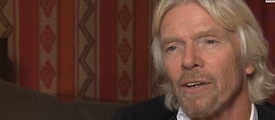As the summer of 2024 continues to showcase some remarkable sporting spectacles, there is much we can learn from the leadership styles and strategies seen in these high-performance environments.
By analysing the approaches of prominent figures and teams, we hope to gain insights into creating a positive workplace culture, fostering team cohesion, and driving continuous improvement.
This article explores these lessons through the examples of Gareth Southgate, the British Olympic Cycling team, the ‘Big Four’ in men’s tennis, the Jamaican Sprint team and Tiger Woods.
Gareth Southgate: Leadership in Football
Gareth Southgate’s leadership of the England men’s football team was marked by humility, strategic planning, and strong team spirit.
While expectations of success grew exponentially through his reign, Southgate transformed the team into a resilient and self-believing unit by integrating younger players and fostering camaraderie. While many fans look back wishing the team could have taken the final step and win a trophy, the workplace environment that Southgate was responsible for undoubtedly contributed to England’s consistently improved performance in major tournaments.
Hospitality leaders can learn from Southgate’s emphasis on a clear vision and strategic planning. His focus on performance over results aligns with the industry’s need for consistent service standards.
Furthermore, Southgate’s humility and prioritisation of collective success over individual ego resonates with the hospitality’s focus on teamwork. His inclusive approach, embracing diversity and giving ownership to team members, can inspire leaders to cultivate a culture of empowerment and innovation within their organisations.
While some fans may still rue a missed opportunity, his successor will have a very solid platform from which to build for the future and bring football home at last.
British Olympic Cycling Team: The Power of Marginal Gains
The British Cycling team’s success in earlier Olympic Games exemplifies meticulous improvement and a culture of excellence.
Under leaders like Sir Dave Brailsford, the team adopted the ‘aggregation of marginal gains’ philosophy, focusing on small incremental improvements that collectively lead to significant achievements. This strategy resulted in a remarkable medal haul, particularly in the 2008 Beijing and 2012 London Olympics.
Hospitality businesses can adopt a similar approach by encouraging guest feedback, acting on this feedback to refine processes, and examining every step of the customer journey in detail.
Understanding your guests, empowering your employees and regularly tweaking and improving processes based on feedback will help deliver excellence consistently and can lead to substantial improvements in customer service, employee satisfaction, loyalty, and profitability.
The ‘Big Four’ in Men’s Tennis: Comprehensive Support Systems
The legendary ‘Big Four’ in men’s tennis—Federer, Djokovic, Nadal, and Murray—have set new standards for athletic excellence and sportsmanship.
While their dominance has ended through retirement or injury, their legacy will impact the sport for generations to come. Their success was partly due to a new era of comprehensive support structures, including specialised coaches, fitness trainers, physiotherapists, nutrition and mental health experts.
The hospitality industry can learn from this model by investing in employee development and creating a supportive environment. Just as tennis players benefit from a holistic approach to performance, hospitality professionals can thrive in a workplace that nurtures their skills and well-being. Additionally, the sport’s commitment to inclusivity and community engagement offers a blueprint for hospitality services to better meet the diverse needs of their clientele, enhancing service excellence.
Jamaican Sprint Team: Mentorship and Specialisation
The Jamaican Olympic Sprint teams’ dominance in athletics highlights the importance of mentorship, rigorous training, and a specialised approach. The presence of sprinting legends as mentors and a ‘long-to-short’ training philosophy have been key to nurturing young talent and ensuring peak performance.
The ‘long-to-short’ training philosophy, central to Jamaican sprinting success, involves starting the training season with longer, endurance-building runs and gradually shifting to shorter, more intense sprints as competitions approach. This method builds a strong aerobic base initially, enhancing the athletes’ stamina and conditioning.
As the training progresses, the focus shifts to speed and power, with shorter distances and explosive sprinting exercises. This progressive build-up ensures that athletes peak at the right time, maximising their speed and performance during critical races.
Similarly, hospitality professionals can benefit from the guidance of experienced mentors. Developing service skills progressively and specialising in niche markets or services can help businesses distinguish themselves from competitors. For instance, just as sprinters focus on specific muscle groups to enhance performance, hospitality businesses can focus on particular aspects of service, such as personalised guest experiences or high-quality dining options. The dedication, strategic development, and leveraging of unique strengths seen in Jamaican sprinters can drive excellence, ensuring that employees are well-prepared and capable of delivering outstanding service during peak periods.
Tiger Woods and the “Big Miss”
Despite his current form, Tiger Woods is regarded as one of the two greatest golfers of all time. His coach during his most successful period was Hank Haney, who focused on identifying and eliminating the “big miss” from his game.
The “big miss” refers to a significant, potentially disastrous error that can derail an athlete’s performance, such as Tiger’s occasional severe hook.
By meticulously analysing Woods’ swing and technique, Haney worked to redevelop a swing that minimised the risk of this major mistake, ensuring more consistent and reliable performance. This approach helped Woods avoid errors that could have had a more substantial negative impact on his game, allowing him to maintain his competitive edge and dominate the game for so long.
Hospitality can draw a valuable lesson from this meticulous approach to error prevention. By identifying and addressing potential major service failures—such as a significant drop in customer satisfaction due to poor service or operational inefficiencies—we can create strategies and processes to mitigate these risks. This proactive stance involves training employees to handle high-pressure situations, regularly reviewing feedback and refining processes while maintaining high standards of quality control. By focusing on eliminating the “big miss,” we can enhance overall service consistency, reduce the likelihood of significant failures, and ultimately improve guest satisfaction and loyalty.
Conclusion
The hospitality industry stands to gain significantly by adopting leadership principles from the world of sports. From Gareth Southgate’s visionary approach and the British Cycling team’s focus on marginal gains, to the comprehensive support systems in tennis to the mentorship in Jamaican sprinting and Tiger’s ‘big miss’, these examples offer valuable lessons. By embracing these strategies, we can foster a positive workplace culture, enhance team cohesion, and drive continuous improvement, ultimately leading to greater employee satisfaction, customer loyalty, and business success.
Hospitality People Group, remains dedicated to exploring all opportunities to provide insights and support our clients and their people strategies. Our commitment to think outside the box ensures that businesses can learn unique and valuable lessons to create lasting value and positive experiences for their employees and customers.
If you would like to discuss your people strategy further, then please get in touch.
Guy Lean, Managing Director – Madison Mayfair
+44 20 8 600 1180 / +44 7813 009787 / [email protected]
Dan Akhtar, Managing Director – HPG Advisory Services
+44 208 600 1166 / +44 7808 157796 / [email protected]
Chris Denison Smith, Managing Director – FM Recruitment
+44 20 8 600 1160 / +44 7775 711923 / [email protected]
Andrea Shaw, Director – FM Recruitment
+44 20 8 600 1160 / +44 7714 236469 / [email protected]








